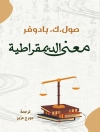George Orwell’s central argument is that the normalization of bad writing leads to political oppression. Orwell starts with the premise that the distortion of 'language’ reflects a 'corruption’ of 'civilization.’ But Orwell objects to the conclusion he believes readers usually draw from this initial premise. Specifically, Orwell claims that most readers—even those who think language and politics are in a bad state—presume that language is merely a mirror of society. That is, language only reflects the state of the world. Orwell claims language doesn’t just reflect the condition society. Language, he argues, also shapes society. He contends that language is both prescriptive and descriptive of civilization’s decline.
O autorze
Eric Arthur Blair (25 June 1903 – 21 January 1950), known by his pen name George Orwell, was an English novelist, essayist, journalist and critic. His work is characterised by lucid prose, biting social criticism, opposition to totalitarianism, and outspoken support of democratic socialism.
As a writer, Orwell produced literary criticism and poetry, fiction and polemical journalism; and is best known for the allegorical novella Animal Farm (1945) and the dystopian novel Nineteen Eighty-Four (1949). His non-fiction works, including The Road to Wigan Pier (1937), documenting his experience of working-class life in the north of England, and Homage to Catalonia (1938), an account of his experiences soldiering for the Republican faction of the Spanish Civil War (1936–1939), are as critically respected as his essays on politics and literature, language and culture. In 2008, The Times ranked George Orwell second among 'The 50 greatest British writers since 1945′.












